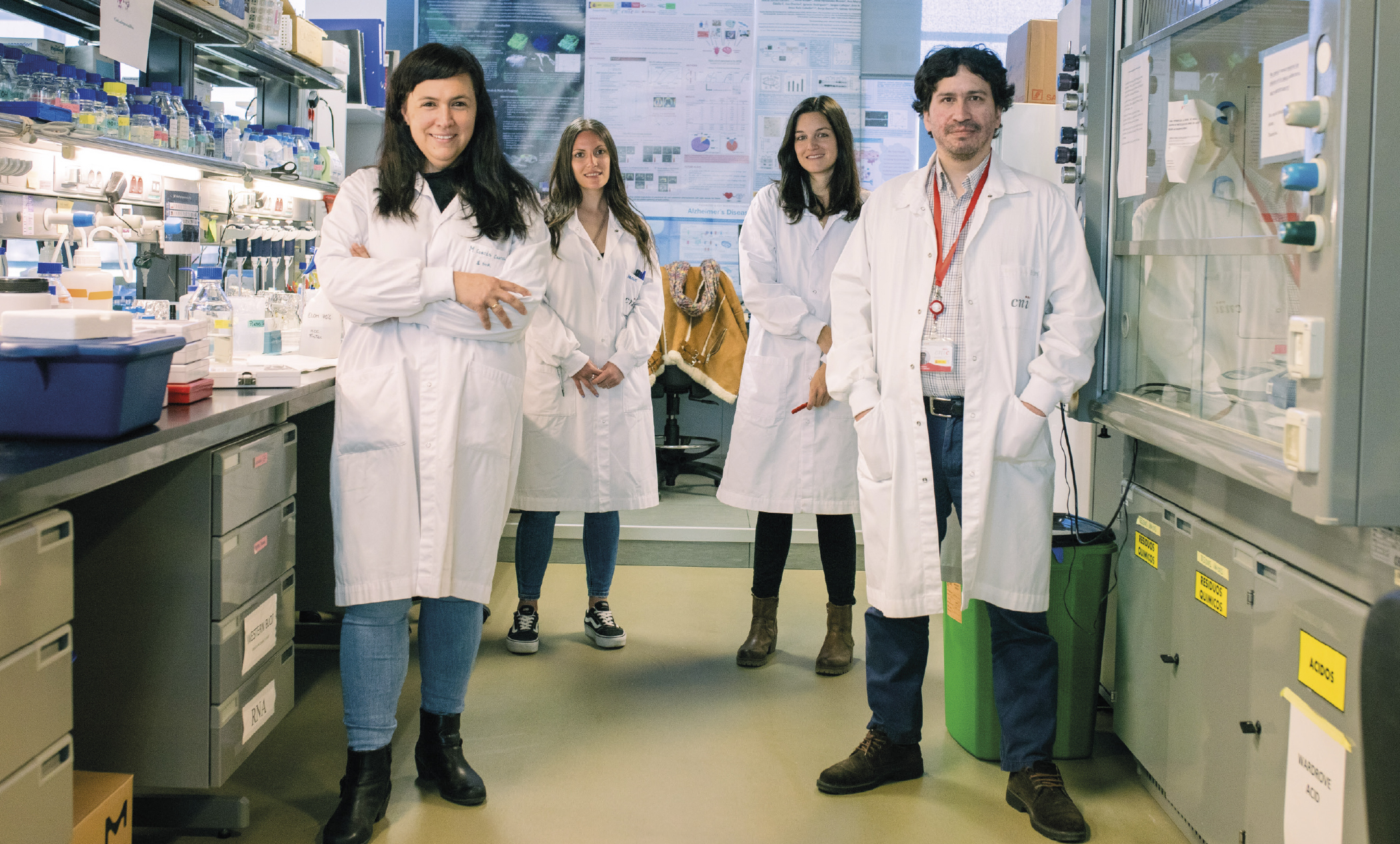The BrightFocus Foundation awards an Alzheimer’s Disease Research Standard Award to a CNIC project
The ultimate objective of the project is to get further knowledge on the impact that the cardiovascular risk factors have on the brain function in middle aged people

The BrightFocus Foundation has awarded an Alzheimer’s Disease Research Standard Award to the project Understanding the impact of midlife cardiovascular risk factors & subclinical atherosclerosis on brain’s health: a role on Alzheimer’s pathology, coordinated by Dr. Marta Cortés Canteli, researcher at the National Center for Cardiovascular Research (CNIC), together with Dr. Valentín Fuster, General Director of the CNIC, and Dr. Juan Domingo Gispert, from the CNIC and the Barcelonaβeta Brain Research Center.
The project has a duration of 3 years and will count with an annual financing of $100,000. Dr. Borja Ibáñez and Dr. Fátima Sánchez Cabo, from the CNIC, will participate in this project, along with the world leaders in plasma biomarker determination, Dr. Kaj Blennow and Dr. Henrik Zetterberg, from the University of Gothenburg (Sweden), who will participate as external collaborators, among others.
The project focuses on the longitudinal determination of specific plasma biomarkers of neuronal damage, neuroinflammation and Alzheimer’s disease of the people participating in the PESA-CNIC-Santander study whose brain images have been obtained.
The BrightFocus Foundation is a nonprofit organization that supports research and provides public education on brain and eye diseases, including Alzheimer’s disease, macular degeneration, and glaucoma.

The project focuses on the longitudinal determination of specific plasma biomarkers of neuronal damage, neuroinflammation and Alzheimer’s disease of the people participating in the PESA-CNIC-Santander study whose brain images have been obtained
The Progression of Early Subclinical Atherosclerosis (PESA-CNIC-Santander) is a prospective study that began two decades ago in more than 4,000 asymptomatic middle-aged people that aims to identify the presence of atherosclerosis and associated disorders from the early stages until the transition to symptomatic phases.
It is known that the relationship between cardiovascular disease and the factors of cognitive impairment occurs many years before the first clinical symptoms of either pathology appear. In 2021, a CNIC study, in collaboration with the Bank of Santander and neuroimaging experts from the Barcelonaβeta Brain Research Center, proved that there is an association between brain metabolism, cardiovascular risk and atherosclerosis during middle age, years before the first symptoms appear.
The information, which was published in the Journal of the American College of Cardiology (JACC), is highly relevant because, as Dr. Valentín Fuster – General Director of the CNIC, and one of the main authors of this study assures, it opens up the possibility of intervening on a modifiable disorder, such as cardiovascular diseases, to prevent the evolution of a pathology for which there is no treatment, such as dementia.
The BrightFocus Foundation is a nonprofit organization that supports research and provides public education on brain and eye diseases, including Alzheimer’s disease, macular degeneration, and glaucoma
Furthermore, the Director of the CNIC also underlines that, “despite the fact that we all know the importance of taking care of ourselves and controlling cardiovascular risk factors to avoid a heart attack, the fact that they are related to a deterioration in cognitive status can lead to greater awareness of the need to acquire healthy habits in the younger phases of life.”
In addition, the data obtained in this study further support the importance of implementing primary cardiovascular prevention strategies in midlife as a valuable therapeutic approach to delay or even stop brain alterations that may contribute to future cognitive decline.
The project now financed by the BrightFocus Foundation will analyze whether these already identified biomarkers are related to the presence of cardiovascular risk factors and subclinical cardiovascular disease, among other variables, in order to determine if there is an association between cardiovascular and brain disease on a subclinical level and thereby understand what the mediators and the possible mechanisms causing this association are.
In those individuals in the PESA study with subclinical atherosclerosis, cardiovascular risk and subclinical cardiovascular disease are associated with cerebral hypometabolism in brain regions known to be hypometabolic in the Alzheimer disease

The results of this study, already published in different scientific magazines, indicate that subclinical atherosclerosis is very frequent in this healthy middle-aged cohort. And, furthermore, Dr. Cortés Canteli points out that it has been shown “that in those individuals in the PESA study with subclinical atherosclerosis, cardiovascular risk and subclinical cardiovascular disease are associated with cerebral hypometabolism in brain regions known to be hypometabolic in the Alzheimer disease.”
The next step, she says, thanks to funding from BrightFocus, is to “further advance these analyses and determine to what extent this cerebral hypometabolism is due to neuronal injury and whether neuroinflammation and/or Alzheimer’s pathology is also involved.”
This study, she adds, “would be an important step forward in our knowledge to develop preventive interventions to reduce the incidence of Alzheimer’s dementia in old age.”
“We are proud and excited to fund Dr. Cortés Canteli’s project, which will provide priceless information on how cardiovascular risk contributes to cognitive decline and the onset of dementia,” said Sharyn Rossi, director of Scientific Programs, Neuroscience at BrightFocus.

















